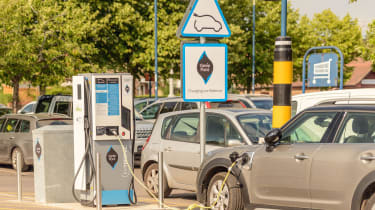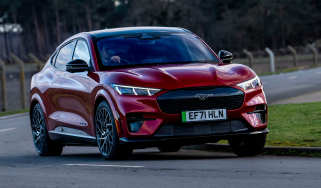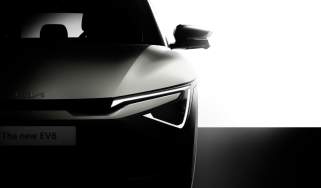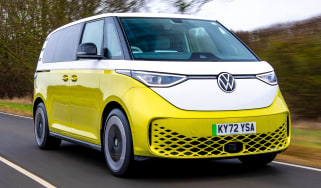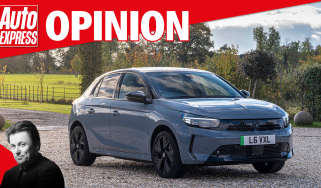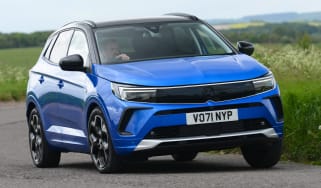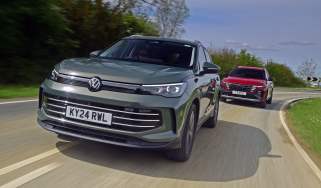Fast charging or rapid charging? Electric car charger types explained
Our guide gives you everything you need to know about electric car charger speeds and types in the UK
Motorists have been filling cars with petrol or diesel for decades but plugging them in is something new. It's not surprising that there is confusion around electric cars and plug-in hybrids especially when you're confronted with the aray of charging speeds and charging connector types that exist on the market today. Fortunately, we're here to help with this guide to EV charging speeds and the charger types that deliver them.
In simple terms, there are slow, fast and rapid chargers available, with different connectors and rates of charge. All three methods will top up your car with power, but the way they do so differs, as does the speed at which they recharge.
How fast and rapid charging works
Electric-vehicle batteries have to be charged with Direct Current (DC). If you’re using a three-pin plug, it’ll draw Alternating Current (AC), so electric vehicles and PHEVs have a built-in converter to turn AC to DC.
All fast chargers, rated between 7kW and 22kW, work this way, and can fully recharge small electric vehicles in three to four hours.
Rapid chargers are quicker still, and there are two kinds. Rapid AC charging just uses more power (43kW), while rapid DC chargers supply DC current straight to the car, allowing the car to charge at 50kW. Tesla’s Supercharger network works at a much higher 120kW power.
Can all electric cars use these chargers?
The most common connectors for fast chargers are Type 2, while all rapid AC chargers use a Type 2 connection.
Whether your electric vehicle can use DC rapid charging depends on two factors: its maximum charging capacity and which connectors it accepts. Check your own car’s manual or brochure to find out which it has.
Are rapid chargers more expensive to use than fast chargers?
In short, yes. Networks charge different fees, but most are between 25 and 35p per kWh.
Will frequent fast or rapid charging damage my battery?
Batteries do deplete, but built-in systems stop damage from frequent rapid or fast charging.
Electric car charger types
Type 1
This is a single-phase plug with a maximum charge of 7.4kW. It’s found mostly on mainland Europe, but some cars have a Type 1 connector. Some home and public chargers have Type 1 connectors, too, but no public charging station only serves Type 1 cables: if you have a public charging cable, you should be able to charge anywhere.
Type 2
In 2014, the European Commission ruled that all public charging stations must feature a Type 2 connector or connecting capability. This is why new electric vehicles and plug-in vehicles sold in the UK feature Type 2 sockets and often come with a Type 2 cable included. Most of the home chargers that you can buy today also feature a Type 2 connector.
Commando
This style isn’t very popular, as it featured mainly on low-selling electric vehicles. Some public charging stations do feature this connector, but they are rare.
CCS
CCS stands for Combined Charging System and this is a rapid DC charging connector, favoured by European makers. It’s available only in public charging stations with a rapid DC charging capacity of 100kW. If you want to use one, your car must have a CCS socket.
CHAdeMO
This is the Japanese counterpart of CCS. It also works on 50kW power and cars need a specific socket to use the public chargers. But, all stations with CCS also supply CHAdeMO.
For more information on electric car charging in the UK, take a look at our complete guide
